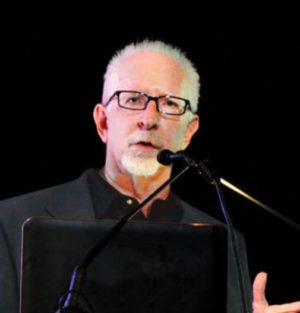I wonder, Does Tom hanks listen to AM radio?Only the people that think typewriters are still useful are the elderly. Same goes for AM radio stations,

Tom Hanks visited a SE Portland typewriter shop, and added a rare find to his collection
Type Space owner Antony Valoppi bonded with Tom Hanks over their passion for typewriters.



